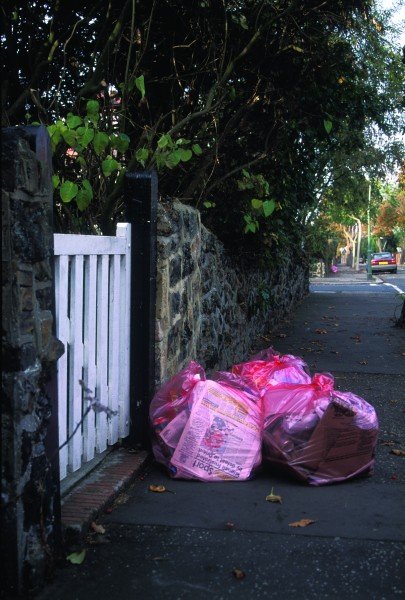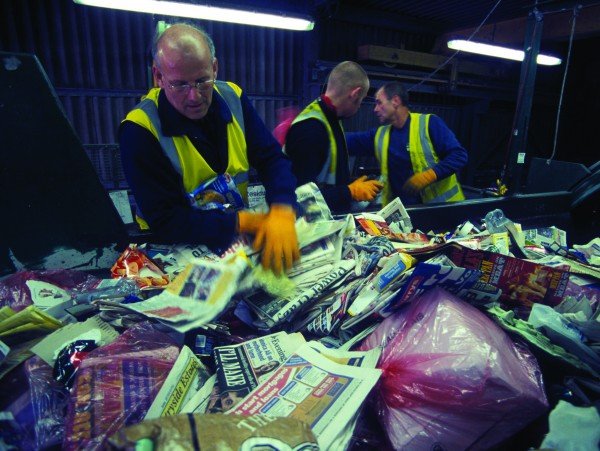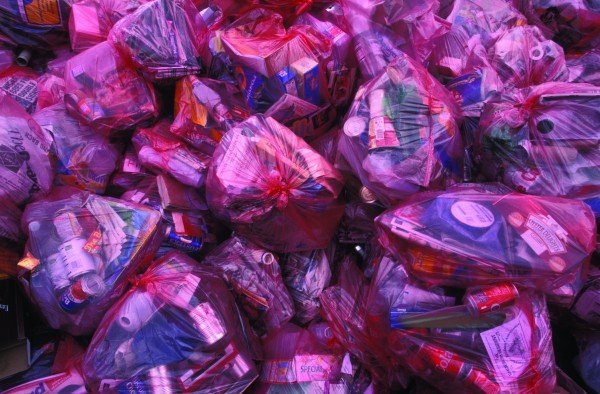On 27 November, HSE and the WISH Forum co-hosted a major summit to review the waste and recycling industry’s health and safety performance since 2013 and to agree future priorities and actions. SHP hears from leading attendees on the event’s key outcomes and future plan of action.

Image © Cory Environmental
In February 2013, HSE and the Waste Industry Safety and Health (WISH) Forum joined forces to host the very first waste and recycling industry summit, hearing from industry representatives on what the sector needed to improve its health and safety performance.
The landmark meeting prompted WISH to develop a blueprint for better risk management and 24 immediate action points, under five strategic themes.
These were to: provide strong leadership; involve the workforce; build competence; create healthier and safer workplaces; and provide support for small and medium-sized employers (SMEs).
As Chris Jones, WISH chair and director of risk management and compliance at Cory Environmental, points out, WISH had been working to improve health, safety and welfare in waste and recycling for more than a decade, when the concept for a forum in which leading figures could exchange ideas and best practice was first mooted in 2001.
“Those of us working in the sector knew at that time that we had a serious problem with accident and absence rates, albeit that the publication of the Bomel reports (RR 240, RR 701), and the attendant raising of public awareness of the issue still lay a number of years in the future,” he says.
“The idea that providing a mechanism to talk, share knowledge and experience would bring about significant change in an industry with such a deep-rooted and cynical culture, and which was so diverse and undergoing such dramatic technological and structural change seems breathtakingly naïve, if not darn right mad.”
And yet, 13 years later, WISH’s second summit has shown that huge strides have been made in the sector since that inaugural event in February 2013.
As Jones explains, accident rates have fallen significantly and consistently during the last ten years.
According to the Environmental Services Association’s annual reports, RIDDOR injuries have fallen nearly 70 per cent since 2003, while HSE annual statistics reflect less dramatic, yet similar, trends.
“What I found most impressive about the second summit meeting was the enthusiasm, the commitment and the sheer energy to bring about positive change to the industry,” enthuses Jones.

Image © Cory Environmental
“If the second summit meeting motivated and uplifted those who attended for the challenges that lay ahead, that was because of everyone’s desire and willingness to tackle the difficult issues, challenge the unchallengeable, think the unthinkable and to be triumphant.”
More importantly, the second summit also provided an opportunity for WISH’s five working groups, formed after the first summit, to report back on their achievements and discuss new plans for future action.
Rick Brunt, who heads up HSE’s agriculture, waste and recycling team, also attended to offer his industry knowledge and a wealth of regulatory experience; his presence demonstrating the willingness of the regulator to support industry-led, self-help.
Adding gravitas to the event, Judith Hackitt CBE, HSE chair, told delegates in the keynote address that the waste and recycling industry was the “worst performing sector” but quickly added that she had faith in its ability to help itself, as “demonstrated by holding events like this”.
One of the summit’s headline successes was the achievement of four strategic goals targeted at SMEs, an historically hard-to-reach industry group.
These strategic goals were:
- industry-specific guidance aimed at an audience not particularly familiar with technology;
- a self-assessment tool for evaluating the effectiveness of the current safety systems in place and aimed at an audience that willingly embraced technology;
- a means to identify current resources and make them easily accessible; and
- to work on how to develop effective methods of communication.
As Susan Relf, compliance director at Agrivert Ltd and chair of the support for SMEs working group, explains, volunteers drawn from a wide range of industry groups, including waste management, skip hire, recycling and construction waste, had developed action plans during 2013-2014 to meet the four strategic goals set after the first summit.
Four tools were created and launched at the second summit:
1) A humorous pocket guidance, which aims to provide visibility to the minimum legal requirements that a business needs to look after its team’s health and safety.
2) Access to a self-assessment checklist available via a mobile App, again to give confidence that the business has visibility of what’s required to safeguard its team’s health and safety.
3) Access to free resources shared by businesses via the Internet – e.g. training DVDs, guidance, toolbox talks, hints and tips.
4) Access to a network to create local groups for communications and networking.

Image © Cory Environmental
Relf explains: “The November summit was a day of two halves and gave the working group the opportunity to not only launch its tools but also discuss future plans, ideas and actions that will help in the delivery of the tools to its intended audiences and to discuss ‘what next?’”
During the afternoon, the SME workshop brainstormed how the four tools could be best targeted at the intended audience and came up with action plans that the SME working group could deliver.
“Delegates decided that over the coming months waste groups should start up across the UK; downloads of the self-assessment checklist should be counted; copies of the pocket guidance should be distributed via larger companies and through the distribution centre; and hits to the WISH website should be counted,” she continues.
“Measuring the success of the tools and allowing the working group to measure the effectiveness of their actions as well as seeing an improvement in waste industry statistics will be the measure of success ultimately”.
As Relf concludes, sharing information and working together as an industry will be critical to creating healthier and safer workplaces.
Another summit highlight was the healthier workplace workshop, led by Dr Peter Sykes from Cardiff Metropolitan University.
Attendees discussed the current and future challenges facing the waste and recycling industry before moving on to look at current health surveillance arrangements in the sector and what specific actions or work streams are required to promote good practice.
“Delegates reported the need for specific guidance and information in relation to the potential respiratory effects arising from exposure to bioaerosols and felt there was a need to improve the reporting of musculoskeletal disorders, dermatitis, stress and the impact of noise exposure on workers within the section,” explains Sykes.
“The development of industry specific guidance regarding health surveillance requirements and procedures is currently under development by WISH’s healthier workplace group and the support for this guidance was universally welcomed.”
Reflecting on the healthier workplace workshop outcomes, Sykes concludes that the enthusiasm and commitment showed by delegates was a very positive response to the occupational health challenges that the waste and recycling industry currently faces.
“The ability to have input from key sector representatives who have extensive experience within the industry who can then contribute to the development of sector-specific guidance though engaging with the WISH workgroups is an excellent platform for improving health and safety performance within the sector,” he says.
The Safety Conversation Podcast: Listen now!
The Safety Conversation with SHP (previously the Safety and Health Podcast) aims to bring you the latest news, insights and legislation updates in the form of interviews, discussions and panel debates from leading figures within the profession.
Find us on Apple Podcasts, Spotify and Google Podcasts, subscribe and join the conversation today!




